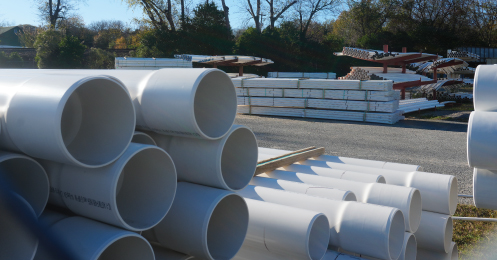Lost sales, a disruption to operations, reputation damage…the true costs of a food recall are quite scary for any food distribution business. Not only do you have to worry about contaminated food products, but food sensitivities and dietary restrictions make it more important than ever for manufacturers, distributors and retailers to properly manage, track and label products to help consumers make informed and safe decisions. Customers need to be able to trust that your business is taking all precautionary measures to prevent a food recall from happening. However, even if you take the proper steps to prevent a recall, your business is still at risk of buying and selling contaminated or mislabeled product from your suppliers.
You might not be able to entirely prevent a food recall, but you can implement proper food recall software with lot tracking to reduce the negative impacts given the worst case scenario. Food recall software tracks inventory across all sales channels and throughout the entire supply chain. Although these types of systems are not cheap, the time and cost savings your business will find from managing a recall when you have a proper solution in place, far outweigh the actual system costs. Below we explore the true costs associated with a product recall and the top software solutions to help you manage recalls.
Direct & Obvious Costs
The systems and processes in place at food facilities will significantly impact the management of a food recall, but in general, the following direct costs will apply across the board no matter the size or operations of a business.
- The costs associated with the disruption of managing normal day-to-day tasks as a result of a product recall
- The costs associated with alerting the appropriate stakeholders, partners, regulatory agencies and customers of the recall
- The costs of managing the communication and logistics required to physically remove the affected product from the supply chain
- The cost of investigating the source of the recall and future prevention – including working with partners and suppliers to identify issues and causes, examining inhouse processes and equipment, and reviewing existing recall prevention plans
Penalties & Fines from Regulatory Bodies
Whether you operate in Canada, the US or other parts of the world, there are certain regulatory bodies that exist to help prevent and control product recalls. These organizations have strict laws and guidelines for the safe management of food product and require that businesses adhere to certain industry standards to reduce the chances of a food recall. Failure to comply with regulations and a recall event itself may lead your business to pay hefty fines and dedicate countless hours working through an audit and compliance process, putting specific measures in place to reduce the chances of future issues. Depending on the severity of the incident, US FSMA laws and USDA regulations may inflict specific penalties such as:
- Issuing advisory letters
- Initiating legal action including seizure of property or sanctions
- Mandating a recall of all products at risk
- Suspending a facilities operation
Consumer & Supplier Suits
2023 update: In a record breaking year, the FDA reported experiencing a 700.6% increase in units impacted in 2022 equating 416.9 million units recalled. Most notably baby formula.
According to numbers from the U.S. Food and Drug Administration, and the U.S. Department of Agriculture’s Food Safety and Inspection Service, there were a total of 270 food and beverage recalls in 2021. The leading reason for the recalls are due to allergenic ingredients not being properly labelled.
If your business is involved in the distribution and sale of the contaminated food product, you’re at risk of a lawsuit. The costs associated with legal action include attorney fees, court costs, settlement fees and loss of productivity as you deal with the ramifications outside of your normal responsibilities. Depending on the severity of the case, you may also be required to pay out damages to those consumers affected. Aside from the costs associated with fighting lawsuits and litigation, the negative impact these actions will have on your business reputation might be impossible to overcome.
Lost Sales
In the event of a recall, manufacturers must stop production and suppliers and retailers must pull product from shelves resulting in lost sales from the contaminated product. However, as word of the recall reaches the ears of consumers, it can change their purchasing habits and trust in your brand. The way in which you deal with a product recall can dictate whether or not consumers decide to continue to purchase your other product lines as well.
Insurance Costs
Recall insurance is designed to protect assets if a recall does occur, however, as with any insurance policy different plans will cover different costs. It’s important to determine what is covered under your plan and how a recall will affect your premiums. If you don’t have insurance, spend the time to learn about your options and make sure you determine ahead of time what is involved in working through a recall with your insurance provider.
Damage to Brand Reputation
Damage to your company’s brand reputation is the biggest factor in whether your business can survive a recall. Not only will a product recall lead your customers to stop the purchase of the product involved in the recall, but it can also lead them to not trust your other product lines as well. Brand reputation is your primary asset – it represents how you do business, your values, and who you are. The way in which you handle a recall and the processes you have in place to do so will indicate to customers whether or not you care about their well-being and safety.
Best Food Recall Software
The reality is you don’t need a separate system to manage recalls. What you need, is for your Wholesale Food Distribution Software to have the functionality to manage food recalls. The best way to manage the flow of inventory, especially food is through lot tracking. Lot tracking enables your business to efficiently follow the journey of a product through the entire supply chain. This functionality gives you the ability to determine everyone who touched the products, where it came from and where it ended up.
The ability to quickly manage a recall and the implementation of sophisticated food traceability software and food safety procedures will let customers know that you have put time and energy into preventing a recall and have the ability to quickly manage the recall process.
For more information about Blue Link's food traceability software, watch the demo video below.










